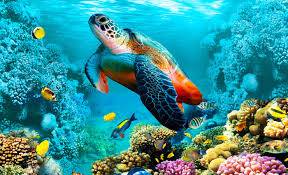According to new research, men are not polygamous in nature, Our body sizes show that we are predominantly monogamous.
In mammals, “sexual dimorphism”—the difference in appearance between male and female individuals—result in huge size differences if a species is polygamous, since males will compete for females by physical force, resulting in an advantage if you are big.
Read Also: 7 Most Useful Social Skills
Walruses, for instance, have males dominating a huge harem of females, and the male is several times the size of the female.
If a species is monogamous, there will be a much smaller difference, or even none at all. I challenge you to tell a male wolf or beaver from a female at a distance, or even close up, without inspecting the genitals.
Looking at our closest cousins, gorillas are very much into having a harem, and males are easily twice the size of females; chimpanzees are more towards the “serially monogamous” end and are more similar in size.
Humans are fairly similar in size, and the difference has decreased during our evolution, suggesting that some of our nearest ancestors were polygamous, but that we later evolved to be monogamous.
The dimorphism was at its maximum among australopithecines, and has decreased since, indicating that they were polygamous, but their immediate descendants*, Homo Habilis, would in that case have been at least less so.
Looking at our survival strategies, it is obvious that humans need to be monogamous. We invest insane amounts of energy and resources into our offspring, and have even evolved a unique solution to help investing, the grandmother; no other species keeps staying alive when they are too old to reproduce. Consequently, a child that gets resources from two parents has had a higher chance of success, up until the modern industrialized society.
I know that it’s common to advance the argument that males have a biological incentive to try to father as many children as possible, but that argument is normally used by men, and they don’t seem to think the argument through.
The biological incentive for females to have different fathers for all her offspring is at least as strong: it maximizes the genetic variation of her offspring.
This is undoubtedly a factor, but the pooling of resources to maximise investment in our offspring has been the strongest influence by far in our evolution.




